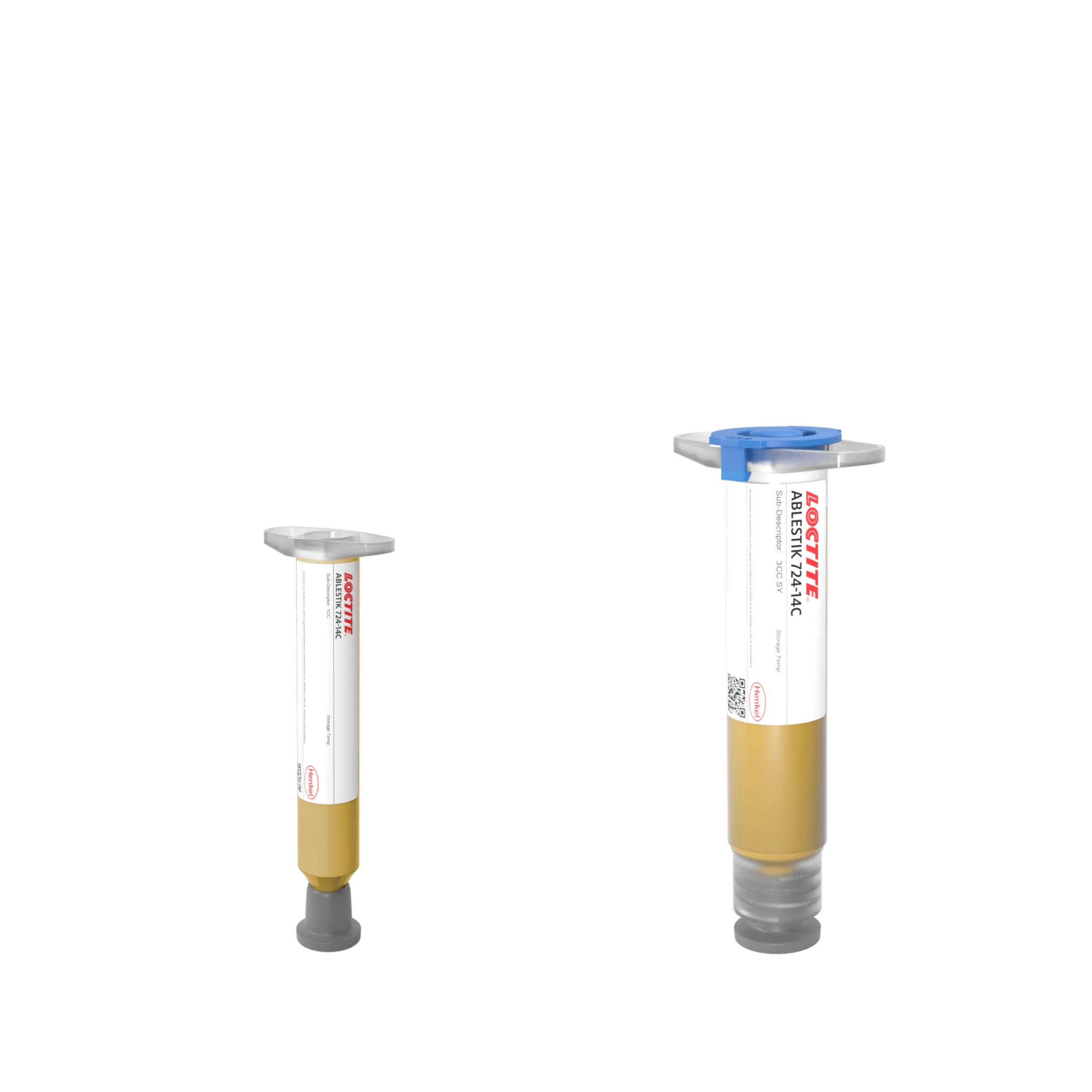LOCTITE ABLESTIK 724-14C
Main features
- Polyurethane
- Room temperature cure
- Works in cryogenic conditions
Product Description
LOCTITE ABLESTIK 724-14C is designed to provide strong, resilient bonds even in cryogenic conditions. It can also be used for tacking wires and as a protective coating. This adhesive contains a flourescent trace for inspection purposes.
LOCTITE ABLESTIK 724-14C is a single component, polyurethane adhesive that can cure in room temperature. It is typically used for component adhesive and works great on substrates such as aluminum, solder, nylon, mylar and steel
Cure Schedule
- 72hours @ 25°C or
- 3 hours @ 74°C or
- 1 hour @ 93°C
Technical Specifications
| General Properties | |||||
| |||||
| Specific Gravity Specific Gravity Specific gravity (SG) is the ratio of the density of a substance to the density of a reference substance; equivalently, it is the ratio of the mass of a substance to the mass of a reference substance for the same given volume. For liquids, the reference substance is almost always water (1), while for gases, it is air (1.18) at room temperature. Specific gravity is unitless. | 1.1 | ||||
| Physical Properties | |||||
| Viscosity Viscosity Viscosity is a measurement of a fluid’s resistance to flow. Viscosity is commonly measured in centiPoise (cP). One cP is defined as the viscosity of water and all other viscosities are derived from this base. MPa is another common unit with a 1:1 conversion to cP. A product like honey would have a much higher viscosity -around 10,000 cPs- compared to water. As a result, honey would flow much slower out of a tipped glass than water would. The viscosity of a material can be decreased with an increase in temperature in order to better suit an application | 500,000 mPa.s | ||||
| Mechanical Properties | |||||
| Elongation Elongation Elongation is the process of lengthening something. It is a percentage that measures the initial, unstressed, length compared to the length of the material right before it breaks. It is commonly referred to as Ultimate Elongation or Tensile Elongation at break. | 450 % | ||||
| |||||
| Thermal Properties | |||||
| Thermal Conductivity Thermal Conductivity Thermal conductivity describes the ability of a material to conduct heat. It is required by power packages in order to dissipate heat and maintain stable electrical performance. Thermal conductivity units are [W/(m K)] in the SI system and [Btu/(hr ft °F)] in the Imperial system. | 0.917 W/m.K | ||||



